Blogging about suffrage history
& suffrage centennial events
|
Next up in my suffrage song adventures is "Winning the Vote (Not For Joseph)" with lyrics by (Mrs.) AB Smith. There are two slightly different versions of these lyrics in Danny O. Crew's wonderful book Suffragist Sheet Music. One is an 1888 authorless version which mentions Boston, MA. The other is the 1912 version that references Madison, WI attributed to AB Smith. It seems these lyrics were altered depending on the battleground state du jour, so I sing *Albany because I live and (mostly) work in NY state. In another publication, Hurrah for woman suffrage! : songs of the woman suffrage movement 1848-1920 by Miriam Reed, the 1912 version is attributed to MRS. AB Smith. If you have been following me you know that I try to find out more about the lyricists & original tunes of these suffrage songs, & I thought this one would be tricky. AB Smith is a nearly impossible name to research, right? Wrong. Google gave me two potential candidates & one is most likely the lyricist. First up: Anna Bustill Smith (1862-1945) was born in Philadelphia to a prominent black abolitionist family. She worked for universal suffrage, and chronicled her family's history becoming the first known black genealogist. Anna also published a number of books including Reminiscences of Colored People of Princeton, N.J., 1800-1900 in 1913. 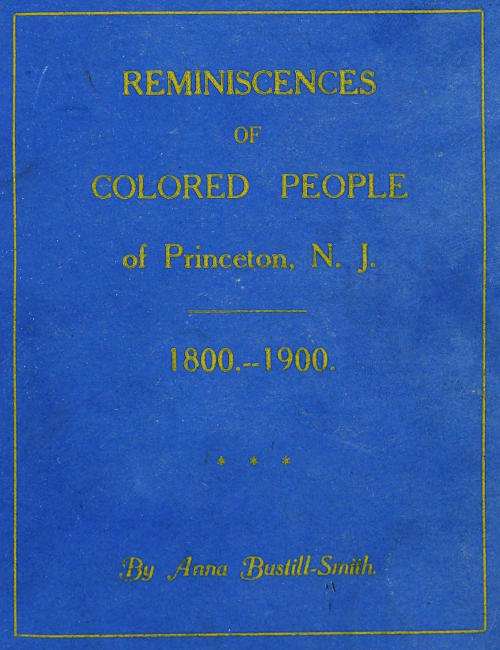 Front cover of a 1913 edition of Anna Bustill Smith's "Reminiscences of Colored People of Princeton, N.J., 1800-1900," a study of Princeton's Black community that was first published in 1913. Anna Bustill Smith was a cousin of Paul Robeson and member of Philadelphia's prominent Bustill family. A suffragist who was the first known African-American genealogist in the United States, she also achieved recognition as an author during the 20th century. By 47thPennVols - Own work, CC0, https://commons.wikimedia.org/w/index.php?curid=101072341 Next is Estelle Turrell Smith, who married her second husband, Dr. AB Smith in Des Moines, IA in 1884, making her Mrs. AB Smith. She appeared in Frances Willard & Mary Livermore's 1893 book A Woman of the Century; Fourteen hundred-seventy Biographical Sketches Accompanied by Portraits of Leading American Women in all Walks of Life. She served as president of both the State Woman Suffrage Association of Iowa & the Polk County Woman Suffrage Society. Since Estelle was a poet and musician, as well as a suffragist, I am leaning toward her being the lyricist of "Winning the Vote", but I do not know for certain. The tune for "Winning the Vote" may not be familiar to us today, but it was a very popular comedic music hall song of the day. Written by Scotsman Arthur Lloyd in 1867, "Not for Joseph" was inspired by public transit. And Lloyd was not to keen on people using his music, or parodying his songs. According to the Arthur Lloyd website I discovered "one notice of January the 9th 1873 said: 'No Comic or Serio-Comic Vocalist in London will be permitted to use Mr. A. Lloyd's Words of Melodies during his Engagements in Town. No parodies permitted. Mr A. Lloyd writes and composes for anybody who likes to pay for original ideas.'" It doesn't appear that Estelle Terrell Smith, or others across the pond paid much attention. Winning the Vote Lyrics: Mrs. AB Smith (1912), Tune: Not For Joseph, Arthur Lloyd (1867) VERSE 1 (HIM) I’ve been down to Albany* To see the folks & sights; You’d laugh, I’m sure, to hear them talk About the women’s rights. Now ‘tis just as plain as my old hat, That’s plain as plain can be, That if the women want the vote, They’ll get no help from me. Not from Joe, not from Joe, If he knows it, not from Joseph! No, no, no, not from Joe, Not from me, I tell you to! VERSE 2 (HER) Say, friend Joseph, why not we Should vote the same as you? Are there no problems in the state That need our wisdom too? We must pay our taxes same as you As citizens be true; And if some wicked thing we do, To jail we’re sent by you. Yes we are, same as you And you know it, don’t you Joseph? Yes you do, yet you boast, You’ll not help us win the vote. VERSE 3 (HIM) But, dear woman, can’t you see, Your home is your true sphere? Just think of going to the polls Perhaps two times a year! You are wasting time you ought to use In sewing and at work, Your home neglected all those hours Would you such duties shirk? Help from Joe? Help from Joe? If he knows it, not from Joseph; No, no, no, not from Joe, Not from me, I tell you no! VERSE 4 (HER) Joseph, tell us something new, We’re tired of that old song; We’ll sew the seams and cook the meals, To vote won’t take us long. We’ll help clean house, the one too large For man to clean alone, The state and nation, don’t you see, When we the vote have won. Yes we will, and you’ll help, For you’ll need our help, friend Joseph; Yes you will, when we’re in, So you’d better help us win. VERSE 5 (HIM) You’re just right, how blind I’ve been, I ne’er had seen it thus; ‘Tis true that taxes you must pay Without a word or fuss; You are subject to the laws men made, And yet no word or note, Can you sing out where it will count I’ll help you win the vote! (HER) Thank you Joe. (BOTH) We’ll together soon be voters; Yes we will, if you’ll all, Vote “yes” at the polls next fall. If you enjoyed this, & any of my other suffrage song posts, please join me on Monday, March 29, 2021 at 6:30 PM EDT for a concert of suffrage songs via Zoom. To register, go to Crandalllibrary.org. The press release is below.
Folklife After Hours Series Returns With Celebration of Women’s History Month The Folklife Center at Crandall Public Library is excited to announce the return of its popular Folklife After Hours Series with Tisha Dolton, Suffrage Singer Presents Songs Celebrating 100 Years of Votes for Women on Monday, March 29, 2021 at 6:30 PM EDT via Zoom. Tisha Dolton presents a concert of songs relating to the Women's Suffrage Movement to compliment the exhibition, Equali-tea: Suffragist Tea Cozies in Redwork, A Suffrage Centennial Exhibition. This concert was filmed and edited by librarian Kevin Rogan and will be presented as a watch party followed by a Q&A with the singer. To register for this free event go to the Events Calendar at CrandallLibrary.org. Dolton is a singer, historian, librarian, and embroiderer whose research focus lies in the music, art, craft, and theater of the women's suffrage movement. She also uses local newspapers to unearth forgotten suffragists in Warren, Washington, and Saratoga counties. In 2020 she received an Individual Artist Grant from Lower Adirondack Regional Arts Council to create 42 embroidered portraits of New York State suffragists and provide community programming to compliment the exhibition currently online at https://www.crandalllibrary.org/folklife-center/folklife-gallery/. Equali-tea: Suffragist Tea Cozies in Redwork is made possible by the New York State Council on the Arts, a state agency Decentralization Program with the support of Governor Andrew Cuomo and the New York State Legislature; administered by the Lower Adirondack Regional Arts Council (LARAC). This and other concerts can be viewed on The Folklife Center at Crandall Public Library’s YouTube channel, https://www.youtube.com/TheFolklifeCenterAtCrandallPublicLibrary. Crandall Public Library is located in downtown Glens Falls, NY. Pop-In Library services are available Tuesday 10am-6pm and Friday 10am-4pm. Curbside Pick-Up is available by appointment on Wednesday, Thursday, and Saturday. The Folklife Center is currently closed to visitors. Please call 518-792-6508 x239 with research inquiries.
0 Comments
"Arise! Brave Woman!" is a suffrage song I end my history with song presentations with. It is a further call to action, a reminder that the work is not done. Another reason is most folks have no problem singing along with the chorus, & sometimes add a bit of harmony! They sing along because it is set to the same familiar tune as "Battle Hymn of the Republic". "Arise! Brave Woman!" was included in the Socialist Campaign Songs book published in 1910 by The Co-Operative Printing Co. of Chicago. The lyrics are by Nannie Parker & are included after the video below. Nannie Parker is a difficult subject to research. Thanks to Google Books, Internet Archive, & all of the libraries, archives & institutions that support digitization efforts, I have been able to find mentions of her in a handful of books, and publications. On page 24 of the November 1907 (V8 n3) issue of the Union Labor Advocate they published her poem, "The Telegrapher's Determination" which appears to have been previously published by The Daily Socialist. Preceding the poem, the magazine states "Mrs. Nannie Parker, one of the striking telegraphers, has been giving expression to her feelings in verse." The afore mentioned strike referred to the Commercial Telegraphers Union of America (CTUA) Strike of 1907 in which workers demanded a wage increase, a shortened work day, better working conditions, & non-discrimination against union members. Women had the additional demand of equal pay for equal work, & eliminating sexual harassments they experienced on the job. Men & women were also angry about the added expense of providing one's own typewriter. Though the strike gained the attention of the Margaret Drier Robbins, president of the Women's Trade Union League, as well as suffragist Harriot Stanton Blatch, founder of the Equality League of Self-Supporting Women (later the Women's Political Union), it was unable to adequately disrupt Western Union's operations, and no real gains were made for workers. 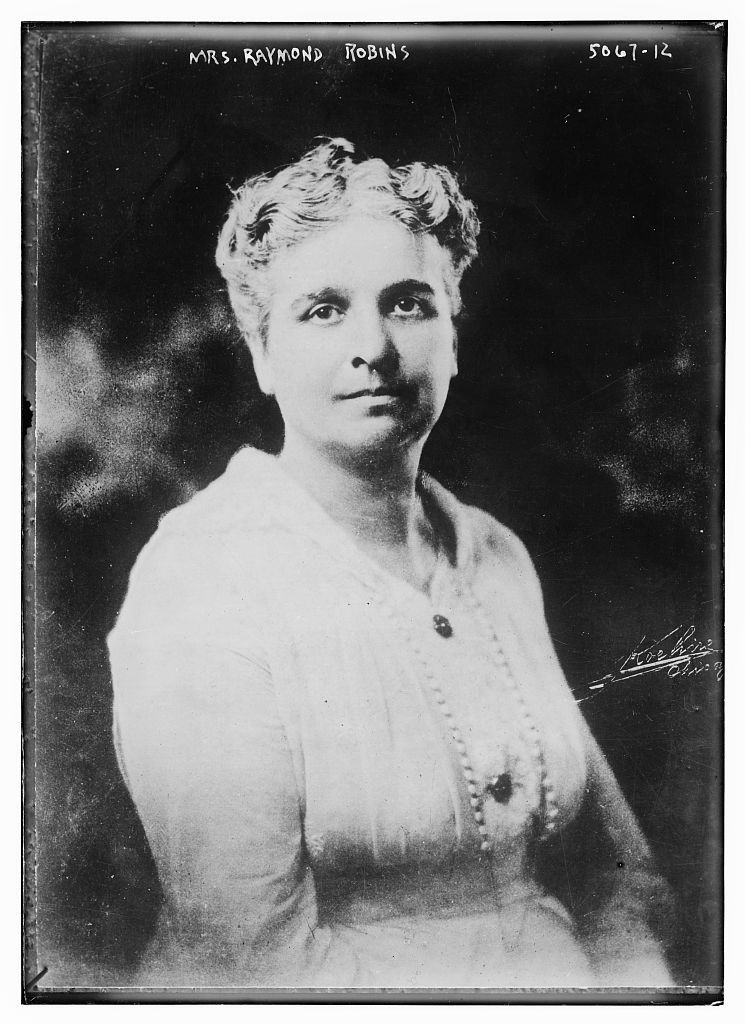 Margaret Dreier (Mrs. Raymond) Robins in 1919. Robins was president of Women's Trade Union League from 1907-1922. She was also one of the National Speakers with the Women's Hughes Campaign Train which traversed the country in 1916 to rally support for Glens Falls, NY native, & presidential candidate, Charles Evans Hughes. In the February 1911 edition of The Progressive Woman, a program on Women's Enfranchisement is outlined to be used for local Socialist chapter meetings. In the program, a recitation of Parker's poem "Comrades", as well as her song "Arise! Brave Woman" are featured. Arise! Brave Woman! (Tune: John Brown’s Body/ Battle Hymn of the Republic, Lyrics: Nannie Parker, 1910) Verse 1 Arise! Arise brave woman! There is work for you to do; Show the world that love is wisdom And love’s promises are true; Break the bonds that hold you captive For the world has need of you And we’ll go marching on. Chorus Glory! Glory! Hallelujah! Glory! Glory! Hallelujah! Glory! Glory! Hallelujah! As we go marching on. Verse 2 Do you need a sound to rouse you? Hear the little children cry; Do you need a sight to stir you? See the old who hopeless die. Shall they call to you in misery While you stand heedless by? No, we’ll go marching on. Chorus Verse 3 Man too long has fought unaided With the evil in the world; But together we shall conquer, All our strength against it hurled; And united march to victory, Our banners bright unfurled, As we go marching home. Chorus Verse 4 We will give the world fair daughters And those daughters shall be free; They shall stand beside their brothers On the ground of liberty, And the cause of right shall prosper On the land and on the sea As we go marching on. Chorus Verse 5 Then arise! Arise brave woman! There is work for you to do; Show the world that love is wisdom And love’s promises are true; Break the bonds that hold you captive For the world has need of you And we’ll go marching on. Chorus SOURCES
“Commercial Telegraphers Union of America.” Wikipedia. Wikimedia Foundation, March 20, 2020. https://en.wikipedia.org/wiki/Commercial_Telegraphers_Union_of_America. Crew, Danny O. Suffragist Sheet Music: an Illustrated Catalogue of Published Music Associated with the Women's Rights and Suffrage Movement in America, 1795-1921, with Complete Lyrics. Jefferson, NC: McFarland, 2002. DuBois, Ellen Carol. Harriot Stanton Blatch and the Winning of Woman Suffrage. New Haven, CT: Yale University Press, 1999. “For Socialist Locals: Program for February. Woman's Enfranchisement.” The Progressive Woman 4, no. 45 (February 1911): 12–14. Jepsen, Thomas C. My Sisters Telegraphic: Women in the Telegraph Office, 1846-1950. Athens, OH: Ohio University Press, 2000. Parker, Nannie. “The Telegraphers' Determination.” Labor Union Advocate 8, no. 3 (November 1907): 24. For Women's Equality Day 2020 & the 100th anniversary of the 19th Amendment I decided to sing "Give the Ballot to the Mothers" (1888) & post it on social media. I even uploaded it to my YouTube channel, which I hope to feature more suffrage related content in the weeks & months to come. Give the Ballots to the Mothers (Tune: Air-Marching through Georgia, Lyrics: Rebecca N. Hazard, 1888) VERSE 1 Bring the good ole bugle, boys! we’ll sing another song. Sing it with a spirit that shall start the world along. Sing it as we hope to sing it cheerily and strong, Give the ballots to the mothers. CHORUS Hurrah! Hurrah! We bring the jubilee! Hurrah! Hurrah! The homes they shall be free! So we’ll sing the chorus from the mountains to the sea, Giving the ballots to the mothers. VERSE 2 Bring the dear old banner, boys! Fling it to the wind. Mother, wife, and daughter, let it shelter and defend. 'Equal Rights' our motto is, we're loyal to the end, Giving the ballots to the mothers. CHORUS Hurrah! Hurrah! We bring the jubilee! Hurrah! Hurrah! The homes they shall be free! So we’ll sing the chorus from the mountains to the sea, Giving the ballots to the mothers. The lyrics to "Give the Ballot to the Mothers" (1888) were written by suffragist Rebecca Ann Naylor Hazard (1826-1912). Many suffrage songs sung at rallies and meetings were set to popular tunes of the day so that lyric sheets could be passed out & folks could just sing along since they already new the tune. This particular song was set to the tune "Marching Through Georgia". Upon a bit of further research I found this was actually a reworking of Hazard's own lyrics. She previously penned a version of this song called "Woman Suffrage Jubilee" in 1882. According to Danny O. Crew's wonderfully useful book, Suffragist Sheet Music, "Woman Suffrage Jubilee" appears in the Woman Suffrage Campaign Book published by Tribune Printing Company of Lincoln, Nebraska in 1882 along with "Keep Woman in Her Sphere", and "Equality before the Law" (Crew, 72-82). The song was reprinted in 1892 on a song sheet called Woman Suffrage Songs (Crew, 133,139) with one alteration; in verse two "freeman's dwelling" is changed to "freeman's home", presumably to remedy the clumsiness in singing the extra syllable in "dwelling". The reworking of the lyrics of "Woman Suffrage Jubilee" appears in the South Dakota Equal Suffrage Song Book published by the South Dakota Suffrage Association, Huron, South Dakota in 1888 under the title "Give the Ballot to the Mother". The lyrics are attributed as "Arranged from the words by Rebecca N. Hazard." Crew, 112) This same disclosure appears on the 1889 Woman Suffrage Leaflet published by the American Woman Suffrage Association, Boston (Crew, 121) , and the 1897 reprint by The Woman's Journal, Boston (Crew, 154). Hazard was an active member of the American Woman Suffrage Association, even serving as president for a term, until the death of her husband in 1879. 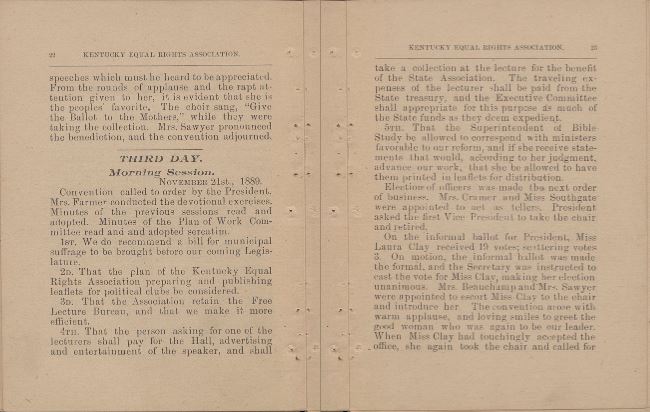 "Give the Ballot to the Mothers" by Rebecca Naylor Hazard was performed on Day two of the convention. Minutes of the Kentucky Equal Rights Association, November 19th, 20th, and 21st, 1889, Court House, Lexington, Kentucky. With Reports and Constitution. Collection: Kentucky Equal Rights Association minutes and reports, University of Kentucky Libraries. "Give the Ballot to the Mothers" was sung by a choir on November 20, 1889, the second evening of the Kentucky Equal Rights Association convention, as you can see in the image above. You can view the minutes of the entire convention on the University of Kentucky Libraries website. I have provided the lyrics to "Woman Suffrage Jubilee" below for comparison. Woman Suffrage Jubilee (Tune: Air-Marching through Georgia, Lyrics: Rebecca N. Hazard, 1882) VERSE 1 Bring the good ole bugle, boys! we’ll sing another song. Sing it with a spirit that shall start the world along. Sing it as we hope to sing it fifty thousand strong, When comes the news in November. CHORUS Hurrah! Hurrah! We bring the jubilee! Hurrah! Hurrah! We’ll vote to make you free! So we’ll sing the chorus from the mountains to the sea, When we win in November. VERSE 2 Bring the dear old banner, boys! Fling it to the freeze. Mother, wife, and daughter, let it shelter all of these. Those who share a freeman’s dwelling*, should themselves be free, Then vote for freedom in November. CHORUS Hurrah! Hurrah! We bring the jubilee! Hurrah! Hurrah! We’ll vote to make you free! So we’ll sing the chorus from the mountains to the sea, And we’ll sing it in November! *The 1892 version changes "dwelling" to "home". SOURCES:
Crew, D. O. (2002). Suffragist sheet music: An illustrated catalog of published music associated with the women's rights and suffrage movement in America, 1795-1921, with complete lyrics. Jefferson, NC: McFarland. Minutes of the Kentucky Equal Rights Association, November 19th, 20th, and 21st... (n.d.). Retrieved September 03, 2020, from https://exploreuk.uky.edu/catalog/xt7v9s1km53j Rebecca Ann Naylor Hazard (1826-1912) - Find A... (n.d.). Retrieved September 03, 2020, from https://www.findagrave.com/memorial/23126/rebecca-ann-hazard Willard, F. E., & Livermore, M. A. (1897). Hazard, Mrs. Rebecca N. In American Women Fifteen Hundred Biographies with over 1,400 Portraits: A Comprehensive Encyclopedia of the Lives and Achievements of American Women during the Nineteenth Century (Rev. ed.) (Revised ed., Vol. 1, pp. 367-368). New York, NY: Mast, Crowell, & Kirkpatrick. "Equality Before the Law" is set to the same tune as "Yankee Doodle" with words by lyrical lawyer Experience Estabrook, who also wrote the lyrics to "Keep Woman in Her Sphere" which I addressed in my previous post. Verse 2, to oversimplify, refers to the 14th & 15th Amendments granting citizenship to freed slaves, & granting the right to vote to black men respectively. Verse 3 plays into the stereotype of the ignorant, criminal immigrant, that is, unfortunately, still used to divide us today.  While an unsuccessful campaign for "impartial suffrage" occured in 1867, Kansas did grant women the right to vote in 1912. Kansas was one of 3 states to ratify the 19th Amendment on July 16, 1919 along with Ohio and New York. (Post card- public domain) While an unsuccessful campaign for "impartial suffrage" occured in 1867, Kansas did grant women the right to vote in 1912. Kansas was one of 3 states to ratify the 19th Amendment on July 16, 1919 along with Ohio and New York. (Post card- public domain) Equality Before the Law (1882) Tune "Yankee Doodle", Lyrics by E. Estabrook Verse 1 Equality before the law, Fit motto for the nation, Was on our state's great seal inscribed As through by inspiration. And where shall any man be found, If he be but true man, Who dare maintain that this was meant For him and not for woman. Verse 2 Equality before the law! The thought inspired devotion! The black man heard the sweet refrain 'Mid was and wild commotion. The slave transformed by freedom's power At once became a new man, And what the nation gave to him, Shall we withhold from woman? Verse 3 Equality before the law! The lesson is resounding Throughout the world from pole to pole' Old dynasties confounding. A foreign pauper, stained with crime, Comes here a full-fledged yeoman, And we, while giving him a vote, Deny it to a woman. *As always, listen to me singing the song by clicking on the orange title of the song. This post was originally published on Medium & my Suffrage newsletter, October 30, 2019.
This month's song is "The Yellow Ribbon" set to the tune "Wearing of the Green" with words by Marie LeBaron (1842-1894). Lebaron was a highly regarded journalist, poet, and suffragist. She wrote for the St. Louis Daily Globe and her poetry appeared in publications such as Kansas Magazine & Appleton's Journal. It seems fitting that her suffrage lyrics should be about yellow, the color of the US Suffrage Movement. The sunflower, being the state flower of Kansas, was used by the suffragists during the unsuccessful Kansas Impartial Suffrage Campaign of 1867 to grant impartial voting rights regardless of sex or color. Adopted by the National Woman Suffrage Association of Susan B. Anthony & Elizabeth Cady Stanton, the use of yellow stemmed from that campaign. Stanton also used the pseudonym Sunflower when writing for Ameila Bloomer's newspaper, The Lily. Use of the tune The Wearing of the Green, is also very telling. First published in an Irish newspaper in 1841, it tells the story of the Irish Rebellion of 1798 in which the Irish Presbyterians & Catholics, inspired by the American & French Revolutions, sought to overthrown the British. The suffragists often used American Revolution imagery in their songs, articles, lectures, cartoons, and plays. By setting these words to another song about rebellion, LeBaron is adding further emphasis on her rebellious lyrics which clearly reference the American Revolution in the first verse, and the Civil War, and Abolitionist Movement in the second verse. The Yellow Ribbon 1876- Lyrics: Marie LeBaron, Tune: The Wearing of the Green VERSE 1 ‘Tis just a hundred years ago our mothers and our sires Lit up, for all the world to see, the flame of freedom’s fires; Through bloodshed and through hardship they labored in the fight; Today we women labor still for Liberty and Right. CHORUS Oh, we wear a yellow ribbon upon our woman's breast, We are prouder of its sunny hue than of a royal crest; ‘Twas God’s own primal color, born of purity and light, We wear it now for liberty, for justice and for Right. VERSE 2 We boast our land of freedom, the unshackling of the slaves; We point with proud, through bleeding hearts to myriad of graves; They tell the story of a war that ended slavery’s night, And still we women struggle for our Liberty, our Right. CHORUS The post was originally published in my Suffrage newsletter on April 22, 2020.
The Suffrage song "Keep Woman in Her Sphere" is set to tune of "Auld Lang Syne", a Scottish song not written by, but first recorded in writing by the Scottish poet & bard Robert Burns. The suffrage lyrics appear in The Woman Suffrage Campain Song Book published in Lincoln, Nebraska in 1882. The lyricist is noted as E. Estabrook. I believe this to be Experience Estabrook (1813-1894) who was appointed attorney general of Nebraska territory in 1855. His daughter, Caroline Augusta (Gussie) Estabrook Clowry was the composer G. Estabrook, who was quite the rock star of her day, selling over one million copies of sheet music, but more about her next month! Experience Estabrook was born in Lebanon, NH & raised in Clarence, NY outside of Buffalo in Eerie County. He attended college & law school in Pennsylvania, before being admitted to the NY Bar in 1839. Shortly thereafter, Estabrook moved to Wisconsin where he practiced law, served in the Assembly, and was Attorney General for two years. Later, he served as a territorial delegate to the 36th Congress for Nebraska, & was a prosecuting attorney. Verse one suggests that women must know there place, & it is in the home. One arguments of the time revolved around women influencing their husbands, &, therefore, not needing the vote. Verse two brings in the question of temperance. One of the major arguments for giving women the right to vote was that women could have control over their own inheritance, wages, and custody of their children, particularly if they married a drunkard. Temperance & suffrage seemed to go hand in hand from the beginning (more on that in future posts). The third verse has the narrator at last speaking to a reasonable man. He comes across as educated, &, possibly, an attorney (as Mr. Estabrook himself was). Finally, a glimmer of hope from the patriarchy. Keep Woman In Her Sphere 1882- Lyrics: Experience Estabrook, Tune: Auld Lang Syne Verse 1 I have a neighbor, one of those Not very hard to find, Who know it all without debate And never change their mind. I asked him "What of women's rights," He said in tones severe- "My mind on that is all made up, Keep woman in her sphere." Verse 2 I saw a man in tattered garb Forth from the grog-shop come; He squandered all his cash for drink, And starved his wife at home; I asked him "Should not woman vote?" He answered with a sneer- "I've taught my wife to know her place. Keep woman in her sphere." Verse 3 I met an earnest, thoughtful man, Not many days ago, Who pondered deep all human law The honest truth to know; I asked him "What of woman's cause!" The answer came sincere- "Her rights are just the same as mine, Let woman choose her sphere." This post was originally published on Medium & through my Suffrage Newsletter, July 29, 2019.
Today's suffrage song is specific to New York! "Set Your Daughter's Free" is one of the 26 songs found in Equal Suffrage Song Sheaf by Eugenie M. Raye-Smith. The second edition came out in 1912. Mrs. Raye-Smith appears to be the lyricist for these songs as all of the songs included in this volume are set to familiar tunes of the day. "Set Your Daughter's Free" is set to the tune of "Wait for the Wagon" which seems to have first appeared in published form around 1851. A number of people are attributed to different published versions, leading me to believe these were new arrangements of a folk tune. Arrangers could establish copyright for a new arrangement of a public domain song in order to collect royalties. Lyricist Eugenie Raye-Smith was a prominent NYC suffragist & lawyer. According to her obituary in the New York Times on July 10, 1914, Mrs. Raye-Smith was Chairman of the Queens County Women's Political Union. The WPU (formerly the Equality League of Self-Supporting Women) was created by Elizabeth Cady Stanton's daughter Harriot Stanton Blatch when she returned from Europe to find the NY State suffrage movement stagnant. "Set Your Daughters Free" (1912) Lyrics: Eugenie M. Raye-Smith, Tune: "Wait for the Wagon" traditional VERSE 1 Oh, New York with your pride of wealth and luxury untold, What, prize you not a woman's worth as greater more than gold? A mighty call now echoes for you from sea to sea, Oh, leader of the Union, come set your daughters free! CHORUS We're waiting for New york, Waiting for New York, Waiting for the Empire State to set her daughters free! VERSE 2 We do not wish to shame you, but lo! we're at the gate! Our Westerns sisters entered, but you seem bound to wait; We've always thought your wisdom our guide through life should be, Now must we try to doubt it? No, set your daughters free! CHORUS VERSE 3 Together on life's journey should man and woman ride, So grant them equal suffrage and they'll travel side by side; We look to you New York, in this our champion to be; The rend the chains of custom and set your daughters free! CHORUS By 1912, this fight for women's rights, including the right to vote, had been raging for 65 years or more (depending on if you use Seneca Falls for the starting point) & New York was right in the thick of it. As mentioned in the song, New York women, in particular, were tired of seeing Western states grant women the right to vote, while their own representatives refused. & NY would refuse one more time in 1915, before finally enfranchising women in 1917.
I am looking to start a crowdfunding campaign for an upcoming project, & one of the things suggested was to get an email list started if I didn't already have one. I did not. & I'm kind of kicking myself, because I have met a lot of lovely, suffrage nerds over the last few years. I sent out a test run last night, & except for a few minor things (one being typos from my last blog post two *gasp* years ago), I think it went rather well. If you would like to join my email list (only one per month unless something AMAZING happens), please click on the button to subscribe. Welcome!Suffrage Song Newsletter #1- Columbia's Daughters & Cocoanut Cookies If you are receiving this, chances are you have seen one of my suffrage singer performances, but here we go! My name is Tisha Dolton. I am a historian, librarian, singer, & embroidery artist. I will probably write about all of these things here as they all tend to relate, in some way, to my dorky/nerdy/obsessive fascination with the Women's Suffrage Movement. I hope to include the following each month: What I am up to... Suffrage Song of the Month Suffrage Centennial Committee Activities Suffrage Centennial Events Calendar SUFFRAGE SONG OF THE MONTH Listen to my recording of this month's suffrage song: Columbia's Daughters (See previous blog post for more...) SUFFRAGE COMMITTEE ACTIVITIES A few years ago, I convinced Kim Harvish of the Chapman Historical Museum to join in on a monthly conference call I had been participating in since 2014 (I think). I felt kind of out of my depth being that most of the people on that conference call were published authors, scholars, tourism specialists, and heads of museums & historic sites. I was just a municipal historian, with a very small budget, but big ideas. I knew that I needed to find some local people who were interested in commemorating the upcoming 100 year anniversary of women winning the right to vote. I couldn't be the only one! So Kim & I co-founded the Celebrating Suffrage in Greater Glens Falls, NY committee. Currently, we meet the first Monday of the month at 10:30 AM at the Chapman Historical Museum in Glens Falls. All are welcome, so if you are interested just pop in. Our next event as a committee will be June 3, 2019 at 6:30 PM at Crandall Public Library in Glens Falls, NY were I am currently the Outreach Librarian. In October 2017, the Celebrating Suffrage in Greater Glens Falls, NY Committee presented a re-enactment of the 1900 New York State Suffrage Convention held in Glens Falls NY. The event was filmed by Hannah DeGarmo. Join the Suffrage Committee as we look back on the re-enactment, the historical 1900 convention, and the upcoming National Suffrage Centennial in 2020. An edited version of the film will be shown, along with a panel discussion lead by participants. 1900 New York State Suffrage Convention re-enactment group photo. Front L-R: Linda McKenney as Carrie Chapman Catt, Kim Harvish as Mary S. Anthony, Tisha Dolton as Anna Howard Shaw, Sandra Weber as Mary Hillard Loines, Kristen Field as Susie M. Bain. Middle Center: Sandi Rhodes (lead in play "A Very New Woman" flanked by four members of The MadCaps. Back L-R: Stuart Field as Addison B. Colvin, David Hodges, Director of Ceremonies, Rev. Don Shuler I will definitely be on hand as part of the panel discussing the music, and my portrayal of the Rev. Dr. Anna Howard Shaw. & I will most likely bring a batch of the "Cocoanut Cookies" I made from a recipe submitted by Mrs. H. R. Shattuck for the 1886 Suffragist Cookbook. Cocoanut Cookies. (1886, p. 81) Into two and one-half cupfuls of pastry flour, rub with the hands one-half cupful of butter. Add one cupful of sugar, one and three-fourths cupfuls of grated cocoanut [sic] (that which comes by the pound is best) and two saltspoonful*s of cream of tartar. Beat one egg and stir in; dissolve one saltspoonful* of soda in boiling water and add, moulding the mixture well together with the hands. If it is not wet enough, add a very little milk or water. The danger is in getting it too wet to roll out well, and probably no moisture will be needed. Roll thin, cut with a doughnut cutter and bake quickly. *saltspoon= 1/4 teaspoon 2019 SUFFRAGE CENTENNIAL CALENDAR
Monday, May 6 - 10:30 AM - Chapman Historical Museum (Glens Falls, NY) - MEETING: Celebrating Suffrage in Greater Glens Falls, NY Committee. (Next meetings: 6/3, 7/1, 8/5, 9/9, 10/7, 11/4) Monday, June 3 - 6:30 PM - Crandall Public Library (Glens Falls, NY) - PROGRAM: 1900 Suffrage Convention Re-enactment Screening & Panel Discussion Wednesday, June 5 - 9:00 AM-3:00 PM - Adirondack Architectural Heritage (Lewis, NY) - TOUR: Inez Milholland and Adirondack Suffrage by Sandra Weber (Registration required) Thursday, July 25 - 7:00 PM - Old Stone Fort Museum (Schoharie, NY) - PROGRAM: Celebrating Woman Suffrage in New York State Wednesday, October 16 - 7:00 PM - Saratoga Springs Public Library (Saratoga Springs, NY) - PROGRAM: Sally Roesch Wagner, PhD on editing her new book "The Women Suffrage Movement". 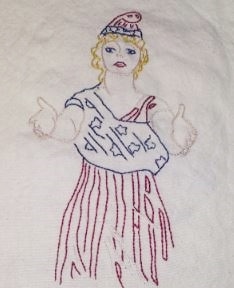 My embroidered portrait of Columbia based on the 1917-8 "Be Patriotic" poster by Paul Stahr. My embroidered portrait of Columbia based on the 1917-8 "Be Patriotic" poster by Paul Stahr. Columbia is the female representation of the United States of America most popular prior to World War 1 when she was replaced by the Statue of Liberty. Because of her popularity, it is not surprising that she was a favorite among suffragists in pageants & parades as you can see in the image above from a collection in the Library of Congress. Columbia also shows up in poems, and songs, like this week's suffrage songs "Columbia's Daughters". All the women in the US were indeed "daughters of Columbia pleading for the right" as the song says. They were pleading for the right to vote, the right of custody to their children whom they birthed, the right to their own wages & inheritance, the right to own property, the right to be a separate person, apart from her husband, & so many more. Some of which we still have to fight for in 2017. Columbia's Daughters Lyrics: Harriet H. Robinson (1888) Music: "Hold The Fort" Hark the sound of myriad voices, Rising in their might! 'Tis the daughters of Columbia Pleading for the right. CHORUS: Raise the flag and plant the standard, Wave the signal still; Brothers, we must share your freedom, Help us, and we will. Think it not an idle murmur, You who hear the cry; 'Tis a plea for human freedom Hallowed liberty! (CHORUS) O our country, glorious nation, Greatest of them all! Give unto thy daughters justice, Or thy pride will fall. (CHORUS) I apologize for not posting yesterday. I was making history.
In honor of The Women's March on Washington, which turned into a local & global phenomenon all at once, I give you The March of the Women with music by Ethel Smyth & lyrics by Cecily Hamilton. Written in 1911 after Smyth joined Emmeline Pankhurst's Women's Social and Political Union, it quickly became the Suffragette's go to song. It has a great rhythm for marching. Plus it's one of the few songs specifically written for the movement. I thought it fitting to share this particular song in the wake of the weekend's events. I, personally, was at the local march in my city of Glens Falls, NY. It's a very small city of around 15,000 people. Our local paper estimates our march at about 1,500 people! We were hoping for 200. I am part of a group working on programs for the NY State Suffrage Centennial this year. I would love to get a group (4 or so) together to perform The March of the Women for our historical rally on May 7, 2017. Plus, we are working on recreating the NY State Suffrage Convention that occurred in Glens Falls in 1900! Stay tuned. Below are images from the Women's March in Glens Falls... The gazebo is the future sight of our Suffrage Centennial rally in May! The final image is me in my National Women's Party colors pussyhat. |
AuthorWrite something about yourself. No need to be fancy, just an overview. Archives
March 2021
Categories
All
|
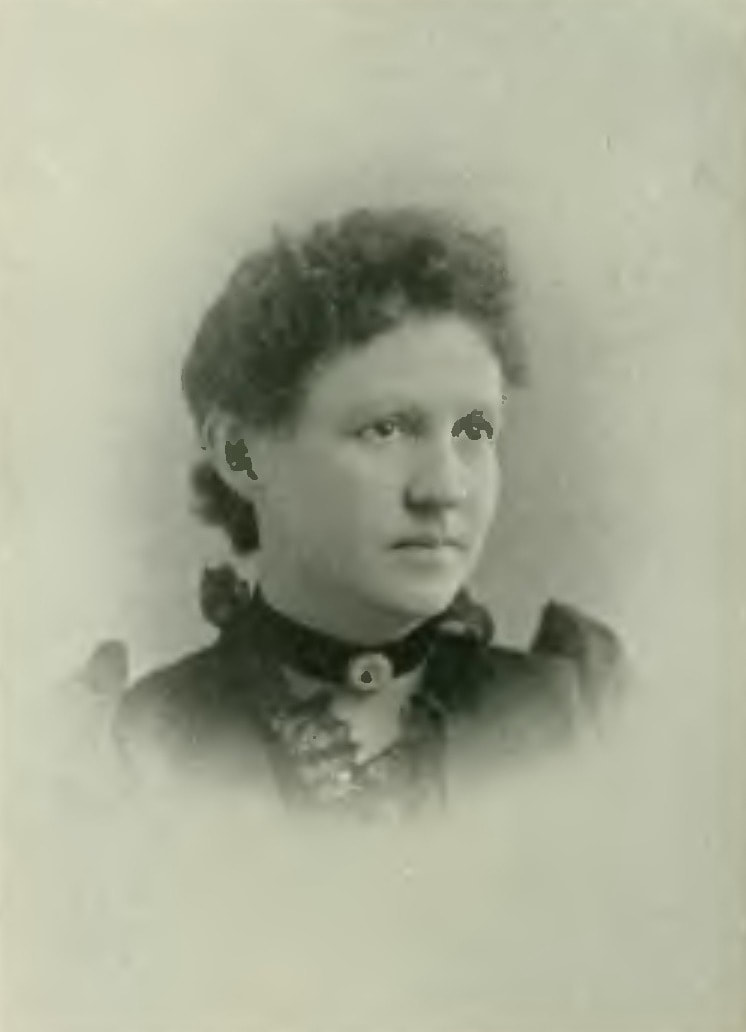
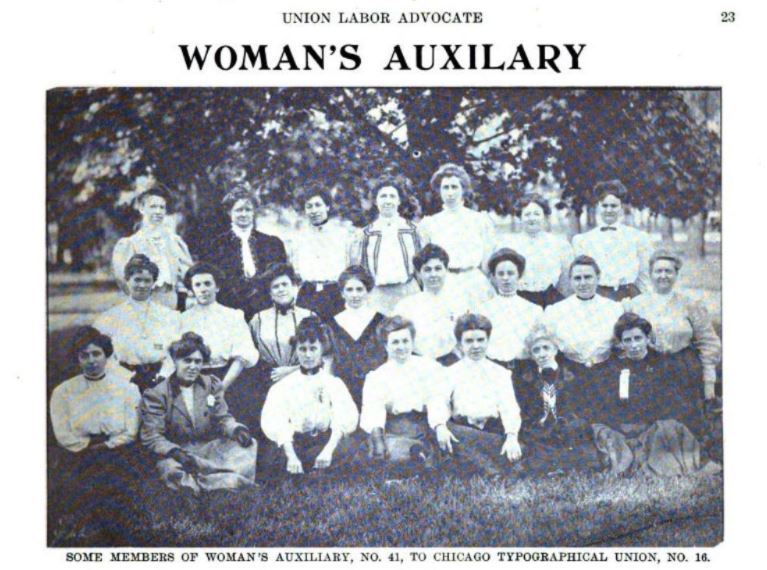
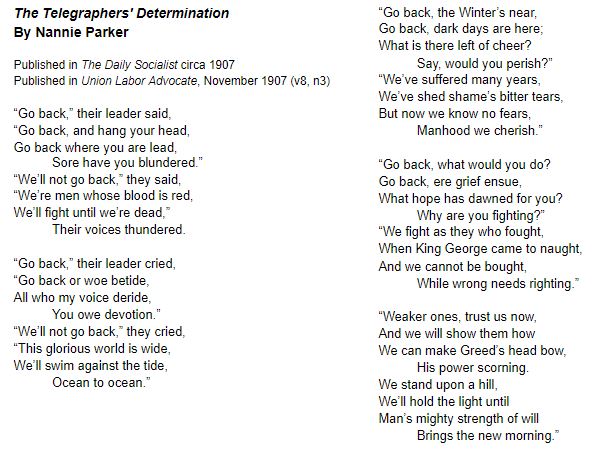
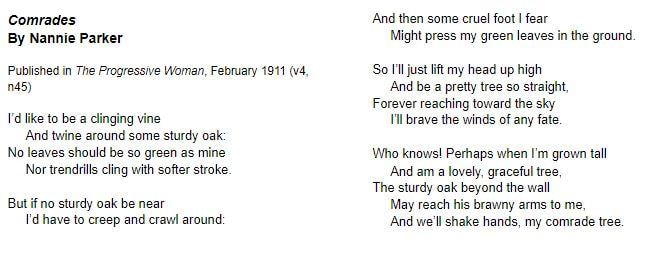
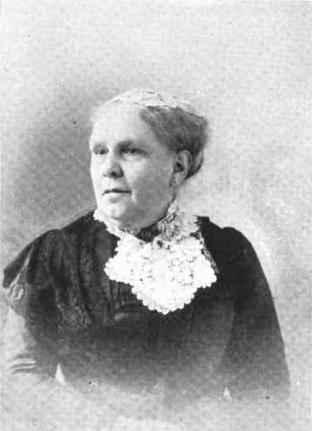
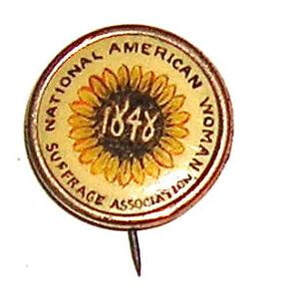
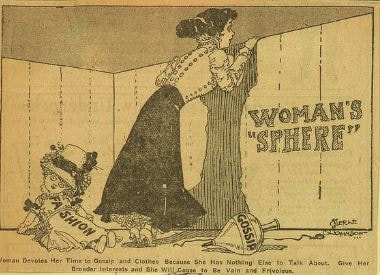
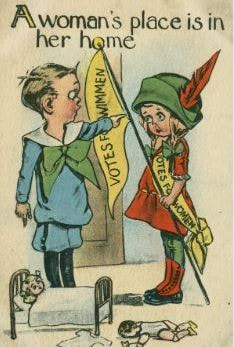
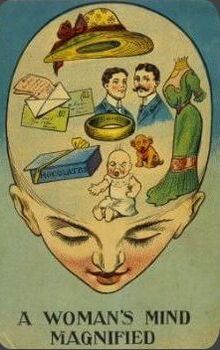
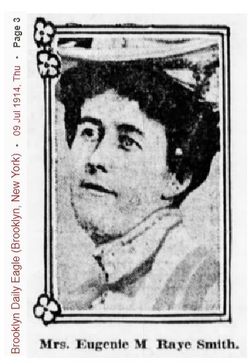
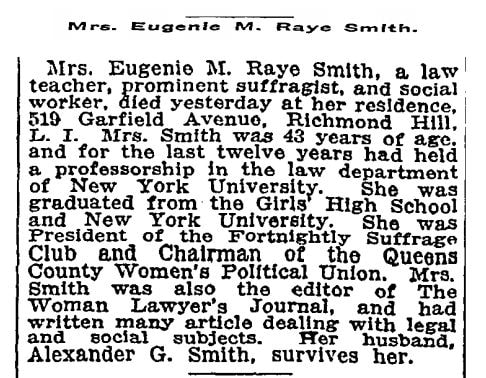
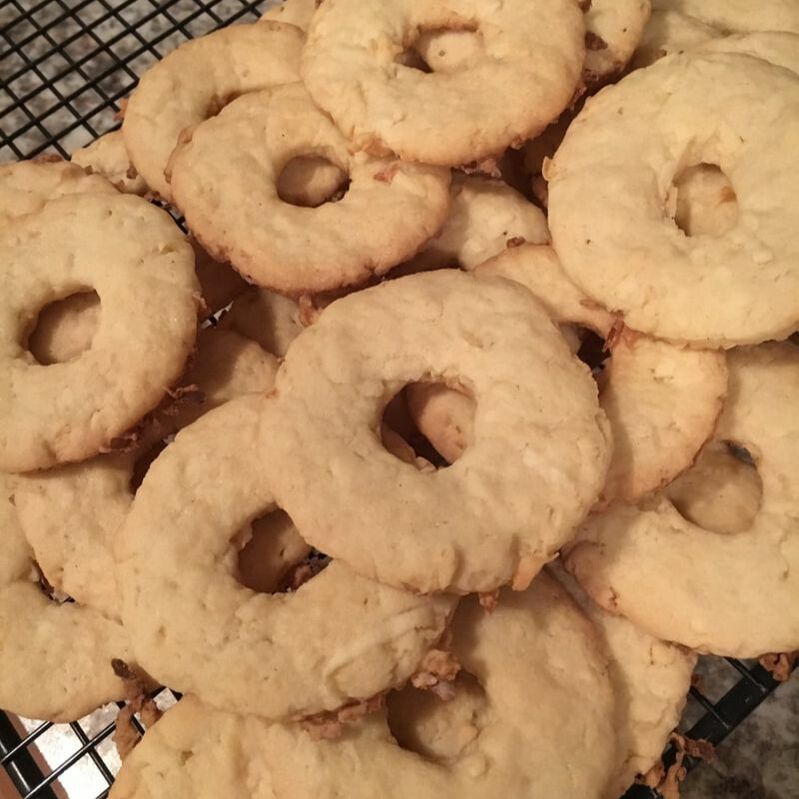
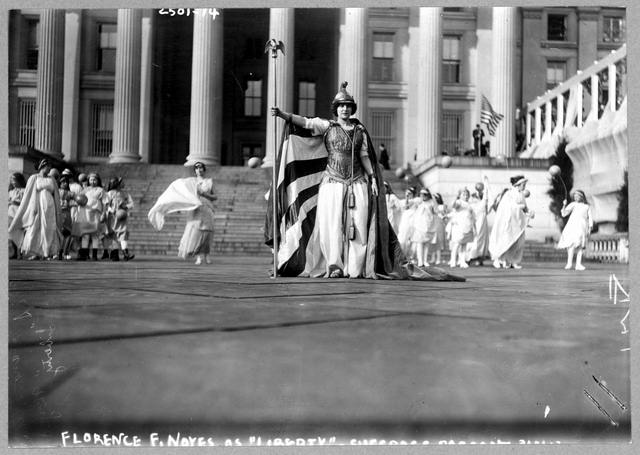
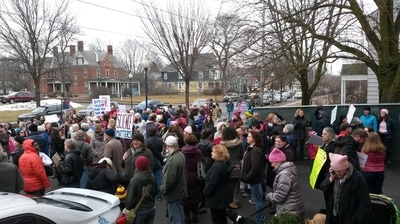
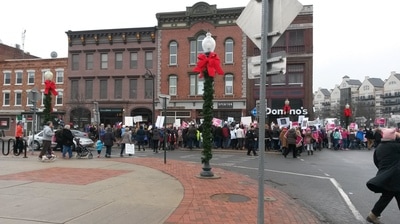
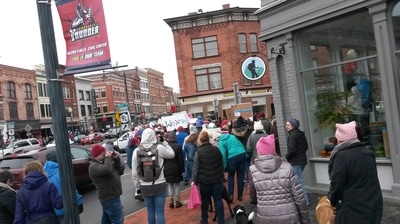
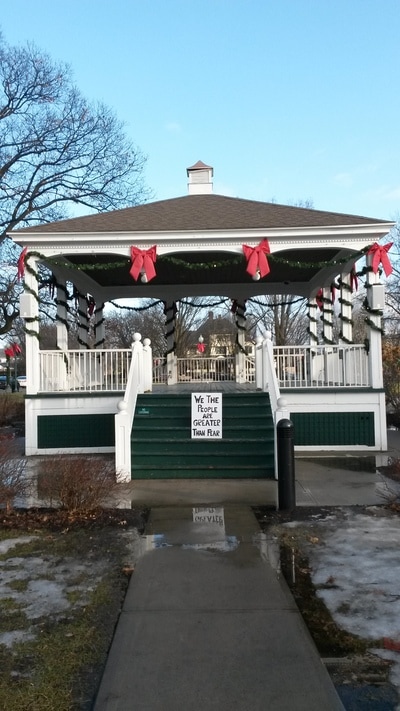
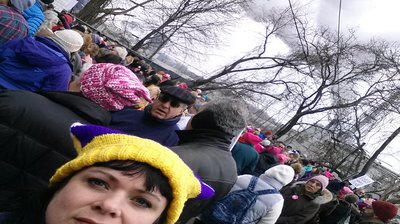
 RSS Feed
RSS Feed
